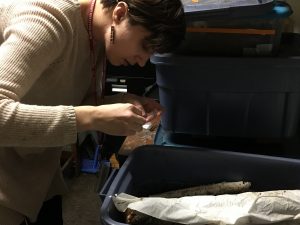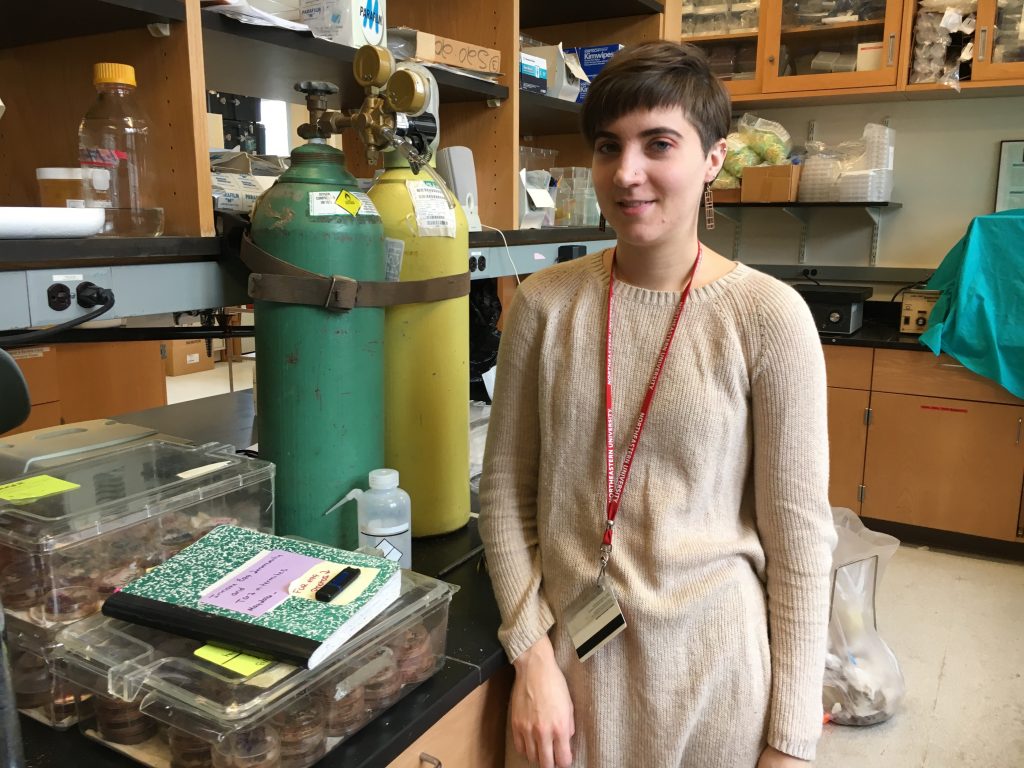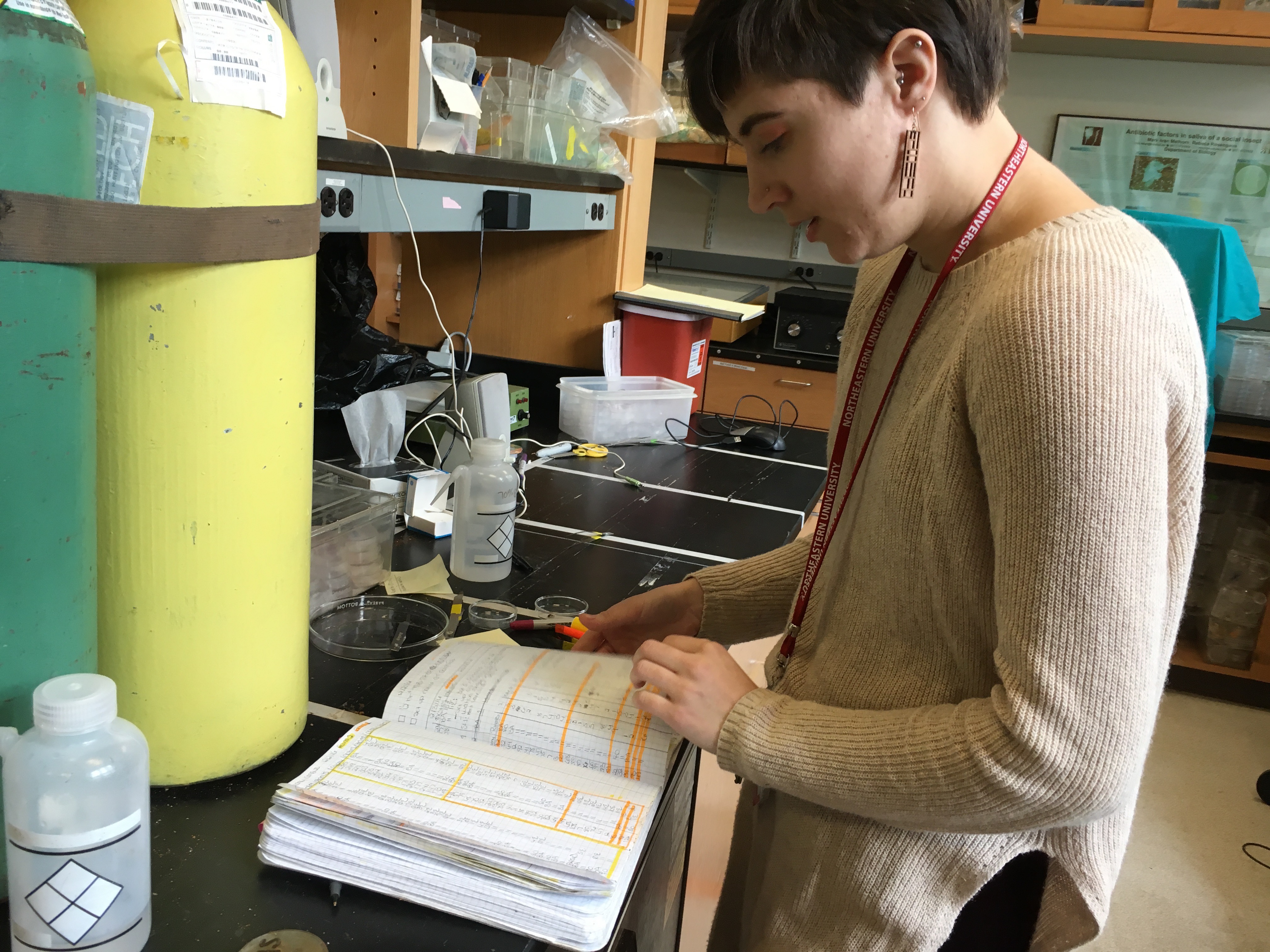by Gwendolyn Schanker, Journalism and Biology, 2018
If you’ve ever found yourself wondering about the daily lives of termites, then you should talk to Erin Cole.
Cole, a fifth-year PhD student in Professor Rebeca Rosengaus’s behavioral ecology lab at Northeastern University, spends much of her day collecting census data from termite colonies that she’s cultured in the lab. Termites are some of the most socially organized animals on the planet: they form robust colonies that last for many generations. Cole wants to know how termites interact with the offspring they produce. One of her primary interests is whether the insects exhibit “trans-generational immunity” (TGI), or the ability for parents to enhance their offspring’s ability to resist a pathogen the parents have encountered during their lifetime.
“There are so many different questions and angles,” Cole said. “I have to narrow down all the hypotheses. TGI is just one of them, but it’s the one that’s keeping us invested.”
Cole treats termite colonies with four different treatments: live bacteria that infects the insects; heat-killed bacteria that activates the organisms’ immune systems but does not actually infect them; a control containing saline solution; and a null treatment, or what Cole calls the “control for the control.” She then checks on each of her colonies each day – a process that can take about four to five hours – to assess parent survival as well as quantity and quality of eggs that are produced.
Her prediction is that mothers who have been treated with bacteria will either lay smaller or fewer eggs, but those eggs will have an increased ability to resist bacteria. To test this prediction, she needs to treat and examine more than 300 termite colonies over the course of several months.

Cole inspects the insects. Photo by Gwendolyn Schanker
Cole’s work has also elicited excitement from the greater scientific community. In September, she presented her progress at the student competition of the 25th International Congress of Entomology (ICE) in conjunction with the Entomological Society of America (ESA), and was awarded second prize.
This is Cole’s third year attending the ESA conference to network with like-minded professionals, but the first time she has received an award for her work. Cole considers herself an introvert, but Rosengaus has encouraged her that at conferences, she should “leave shyness behind” and get to know her fellow scientists. Over time, Cole says she has become more and more confident integrating herself in the scientific community.
“Even though it can be intimidating, the scientists at the conference are welcoming,” Cole said. “I’m included in conversations as a peer. It’s great to be part of exploring how we can use the scientific method to test ideas.”
This exploratory community is a great fit for someone like Cole, who for her undergraduate degree majored in biology and art at Muhlenberg College in Pennsylvania. She didn’t enter science as an aspiring entomologist; she fell into it because she enjoys asking questions that apply across a variety of model organisms, not just termites.
“The questions that she asks deal with social insects, but they’re applicable to anything that reproduces,” said Rosengaus, Cole’s advisor. “What matters to me is fun, exciting questions that have a broad contribution to the field of evolutionary biology.”
During her time at Northeastern so far, Cole has worked closely with Rosengaus to further develop her experiment and research questions. She is also a TA, mentors students one-on-one in the lab, and helps organize the Research Experience for Undergraduates (REU) program in Biology, where she collaborates with other faculty mentors. Though she enjoys all of these experiences, a lot of her time is spent with the termites, which can be exhausting. Getting to interact with like-minded colleagues serves as an important reminder that this sometimes-monotonous work is worthwhile.
“You go through stages of burnout,” she said. “This conference was sort of intellectually reinvigorating. The science that’s happening right now is so cool, and I’m a part of it.”

Erin Cole is a PhD student in Professor Rebeca Rosengaus’s behavioral ecology lab. Photo by Gwendolyn Schanker

